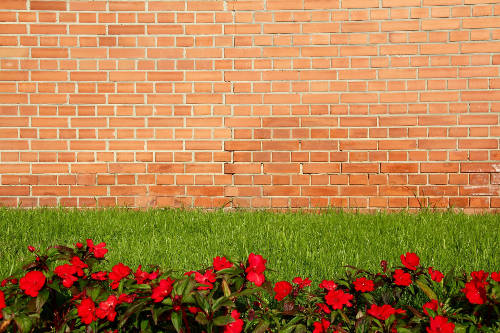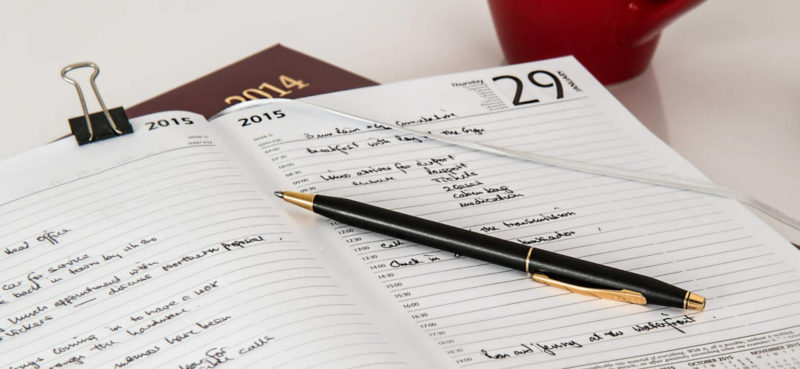To some of you, the idea of practicing every day seemed fairly obvious when you decided to take up piano. But I know that for others, this is a real struggle. Sometimes, you desire to get to it, but you have so many demands on you during the day that by the time you get around to it you’re too tired. Or maybe you have the time, but lack the desire to get to it every day. So it seems that for those that struggle, it’s about getting fired up about the piano every day AND making sure you have the time and energy to do it.
Developing a Habit
Have you ever forgotten to brush your teeth in the morning? You walk outside and get into the car knowing you’ve forgotten something vital. It’s only once you get started in your day that you realize what it is you forgot! And of course, you become self-conscious about your breath and you do whatever you can to scrub at your teeth and take breath mints all day. Once you get home you rush to brush your teeth, even though you survived the day without it.
Well, maybe some of you aren’t obsessive about dental hygiene. But the point is, when you make something a habit, you develop the need to have that thing. When that thing is missing, you feel the loss and you desire to get to do that habit.
So the key is practicing every day no matter what. Ideally, you also practice at the same time of day every day. It’s all about creating a habit of practicing. If you are in the habit of practicing piano, and something causes you to miss practice for your regular session, then you try to fit something in later that day, even if it means playing a scale in your pajamas right before bed. Playing every day develops a need to play every day, and it’s that daily practice that will foster success in playing piano.
Making the Time to Practice
Most people I know are short on time, and the idea of carving out a period of time to practice piano (often, “me” time) is seemingly impossible. First, however, you have to determine what kind of time you are willing to set aside for piano. Be realistic: I don’t think and hour a day is necessary or helpful for a beginner. But an hour a day may be a minimum for an intermediate pianist, and 2 or 3 hours per day for an advanced pianist. Just remember that you can do 3 hours scattered throughout the day, as long as each session is focused.
Once you determine how long you can practice, then you look at your schedule during the week. Write it out if you need to. Is there a time every day that you could consistently be at the piano, but that is also a time you can focus? Personally, I don’t like practicing at night. I’m more alert during the day, so I pick early afternoons before I begin teaching to practice. If you don’t have a time that you can do consistently, then find that time based on the day of the week. That’s a little less than ideal, but it’s possible. Then you write that in on your calendar with all of your other appointments like everything else – then commit to doing it!
Don’t let yourself cop out. You have to maintain something for anywhere from 18 days to 66 days before it becomes a habit, so you will probably have to try pretty hard at keeping it the first couple of weeks, but it does get easier as you go along. It will become a part of your day in no time – and you will actually start to look forward to this special time!
“If I miss one day of practice, I notice it. If I miss two days, the critics notice it. If I miss three days, the audience notices it.” – Ignacy Jan Paderewski
When You Miss a Day, or Two
While establishing that habit of daily practice is the best thing for your progress, there will be times when you miss. Life happens to us all, but it’s important for us to recover from this setback as soon as possible. Missing a day or two or more not only disrupts our habit of daily practice, it also creates some issue in our learning that I need to explain.
The Polish pianist and composer, Ignacy Jan Paderewski once said, “If I miss one day of practice, I notice it. If I miss two days, the critics notice it. If I miss three days, the audience notices it.”
I like to think of daily practice as building a brick wall. A brick wall is the piece of music you want to learn. Each passage in that piece you learn is a brick, and sleep in  between each time you work on that passage is your mortar. The best walls have bricks all in a row, separated by the right amounts of mortar. If you miss some bricks, or just try to do too much in one sitting without sleep (mortar), then your wall will be compromised.
between each time you work on that passage is your mortar. The best walls have bricks all in a row, separated by the right amounts of mortar. If you miss some bricks, or just try to do too much in one sitting without sleep (mortar), then your wall will be compromised.
So what happens when you miss one day that’s so noticeable to the pianist? We rely heavily upon muscle memory to be able to play piano. Muscle memory is basically the ability of the body and mind to place an activity that is well-known into the unconscious so that our conscious mind is freed up to focus on other things. Some of us get really good at typing, for example, and we don’t have to think about where the keys are, our fingers just go there. The same goes for walking up and down stairs. We do it mostly without thinking. So when we don’t type or we don’t walk up or down stairs for a long time, we certainly don’t forget how, but it’s a bit more awkward.
After one day of not playing, we don’t forget how to play, either. Our fingers just don’t land right on the keys where they should. Things aren’t as fluid as when we left them last, and we do take a step backwards in our progress. Muscle memory is pretty fickle, so unless we reinforce it daily, it will gradually fade away. So daily practice will keep this optimal.
Importance of Sleep
Sometimes, students think that if they miss a day of practice, they can just double up the next day to make up for it. However, it doesn’t quite work that way. The Division of Sleep Medicine at Harvard Medical School wrote an article on Sleep, Learning, and Memory, and described 3 functions in the learning process:
- Acquisition: The introduction of new information into the brain
- Consolidation: The processes by which a memory becomes stable
- Recall: The ability to access the information (whether consciously or unconsciously) after it has been stored
“Acquisition and recall occur only during wakefulness, but research suggests that memory consolidation takes place during sleep through the strengthening of the neural connections that form our memories.”
There’s also been quite a bit of research on the ability to recall information, and part of what effects this is reviewing learned information within the first 24 hours of learning it. After 24 hours of learning something new, an average of 70% of that information is lost. So let’s say you practice Monday, forget to practice Tuesday, and come back Wednesday. Wednesday’s practice will be mostly rehashing what you did on Monday! So even if you “double-up” on the amount of time you practice on Wednesday, you’re still going to end up around Tuesday’s practice time, and you still haven’t slept in between. You are lacking that consolidation from Monday’s practice time as well.
In essence, you can’t make-up. But you can move forward and get back on that piano bench!
When You Really Don’t Have Time
For some of you, the thought of daily practice still seems impossible. If you’re in a busy time of your life, just playing a scale each day can be helpful. It happens to us all, but don’t let yourself make excuses as to why you can’t get to the bench at least 1 minute. Then be sure that when your busy time is over with, you get back to a more normal amount for what you’re doing.
If you can only devote consistently 5-10 minutes a day to practice, or only on the weekends, then seriously consider if you should be learning piano right now. As you can see, that’s making piano playing unnecessarily difficult. You may want to consider waiting until you have more time. Sometimes certain seasons in our life requires us to put our full attention elsewhere. If you cannot devote the time to piano that is needed, then save your energy for when you can.
I hope this was informative and inspiring you to get out your calendar and start planning your practice sessions! Remember to review your practice schedule every time you have a major schedule change in your life so that you don’t skip a brick or two!
What struggles do you have with practicing? Join me next time for Part 8, Just Playing!








I didn’t realize that sleeping in between practice sessions could be so important. However, I do sit down at the piano every day – and yes, some days it is just to play scales and arpeggios because I’m simply too tired or it’s been a long day and I haven’t had time to do anything more.
It’s really helpful, especially when working on a tough section that doesn’t make that immediate progress you hope from your practicing. Then you sleep, wake up, and try it again and usually there is some improvement. This flies in the face of those who want instant improvement (not you)!